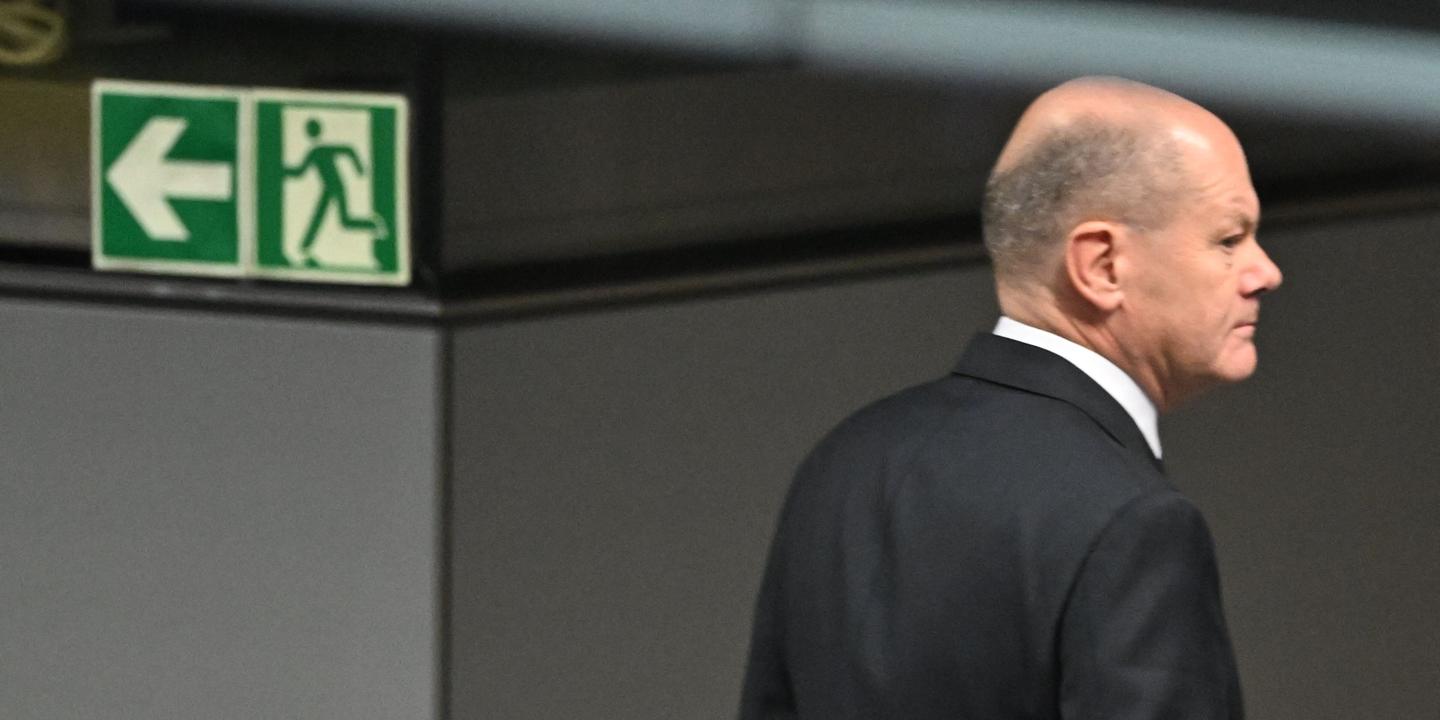BERLIN, Dec 16 (Reuters) - The German parliament accepted Chancellor Olaf Scholz's invitation to withdraw its confidence in him and his government on Monday, clearing the way for an early election on Feb. 23 necessitated by the collapse of his government.
Scholz's three-party coalition fell apart last month after the pro-market Free Democrats quit in a row over debt, leaving his Social Democrats (SPD) and the Greens without a parliamentary majority just as Germany faces a deepening economic crisis.
Under rules designed to prevent the instability that facilitated the rise of fascism in the 1930s, President Frank-Walter Steinmeier can only dissolve parliament and call an election if the chancellor calls, and loses, a confidence vote.
The debate preceding the vote also opened serious campaigning for the election, with party leaders trading ill-tempered barbs.
The chancellor and his conservative challenger Friedrich Merz, who surveys suggest is likely to replace him, charged each other with incompetence and lack of vision.
====
Germany's Scholz loses a confidence vote, setting up an early election in February
Chancellor Olaf Scholz has lost a confidence vote in the German parliament, putting the European Union’s most populous member and biggest economy on course to hold an early election in February
Scholz’s unpopular and notoriously rancorous three-party government collapsed on November 6 when the chancellor fired his finance minister in a long-running dispute over how to revitalise Germany’s stagnant economy, and the minister’s pro-business party quit the coalition.
That left the remaining two centre-left partners without a majority in parliament.
Leaders of several major parties then agreed that a parliamentary election should be held on February 23, seven months earlier than originally planned.
Post-World War II Germany’s constitution does not allow parliament’s lower house, or Bundestag, to dissolve itself, so a confidence vote is needed to set in motion the early election.
That left the remaining two centre-left partners without a majority in parliament.
Leaders of several major parties then agreed that a parliamentary election should be held on February 23, seven months earlier than originally planned.
Post-World War II Germany’s constitution does not allow parliament’s lower house, or Bundestag, to dissolve itself, so a confidence vote is needed to set in motion the early election.
What is likely to happen?
Scholz’s Social Democrats hold 207 seats in the Bundestag and are expected to vote for the chancellor.
Their remaining coalition partners, the environmentalist Greens, have 117 and plan to abstain. That should mean Scholz gets nowhere near the majority of 367 in the 733-seat chamber needed to win the confidence vote.
If Scholz loses, it will up to up to President Frank-Walter Steinmeier to decide whether to dissolve the Bundestag.
Scholz’s Social Democrats hold 207 seats in the Bundestag and are expected to vote for the chancellor.
Their remaining coalition partners, the environmentalist Greens, have 117 and plan to abstain. That should mean Scholz gets nowhere near the majority of 367 in the 733-seat chamber needed to win the confidence vote.
If Scholz loses, it will up to up to President Frank-Walter Steinmeier to decide whether to dissolve the Bundestag.
Steinmeier, who said last month that “this country needs stable majorities and a government that is capable of acting”, has 21 days to make that decision. Once parliament is dissolved, the election must be held within 60 days.
In practice, the campaign is already well under way.
In practice, the campaign is already well under way.
What do the contenders say?
Scholz told lawmakers that the election will determine whether “we, as a strong country, dare to invest strongly in our future; do we have confidence in ourselves and our country, or do we put our future on the line? Do we risk our cohesion and our prosperity by delaying long-overdue investments?”
Scholz’s pitch to voters includes pledges to “modernize” Germany’s strict self-imposed rules on running up debt and to increase the national minimum wage.
Scholz’s pitch to voters includes pledges to “modernize” Germany’s strict self-imposed rules on running up debt and to increase the national minimum wage.
Centre-right challenger Friedrich Merz responded that “you’re leaving the country in one of its biggest economic crises in post-war history”.
“You’re standing here and saying, business as usual, let’s run up debt at the expense of the younger generation, let’s spend money and … the word ‘competitiveness’ of the German economy didn’t come up once in the speech you gave today,” Merz said.
“You’re standing here and saying, business as usual, let’s run up debt at the expense of the younger generation, let’s spend money and … the word ‘competitiveness’ of the German economy didn’t come up once in the speech you gave today,” Merz said.
The chancellor said Germany is Ukraine’s biggest military supplier in Europe and he wants to keep that up, but underlined his insistence that he will not supply long-range Taurus cruise missiles, over concerns of escalating the war with Russia, or send German troops into the conflict.
“We will do nothing that jeopardises our own security,” he said.
Merz, who has been open to sending the long-range missiles, said that “we don’t need any lectures on war and peace” from Scholz’s party.
“We will do nothing that jeopardises our own security,” he said.
Merz, who has been open to sending the long-range missiles, said that “we don’t need any lectures on war and peace” from Scholz’s party.
- He said, however, that the political rivals in Berlin are united in an “absolute will to do everything so that this war in Ukraine ends as quickly as possible”.
- The far-right Alternative for Germany, which is polling strongly, has nominated Alice Weidel as its candidate for chancellor but has no chance of taking the job because other parties refuse to work with it.
The last was in 2005, when then-Chancellor Gerhard Schröder engineered an early election that was narrowly won by centre-right challenger Angela Merkel.
December 15, 2024, 9:00 PM
.jpg)







No comments:
Post a Comment